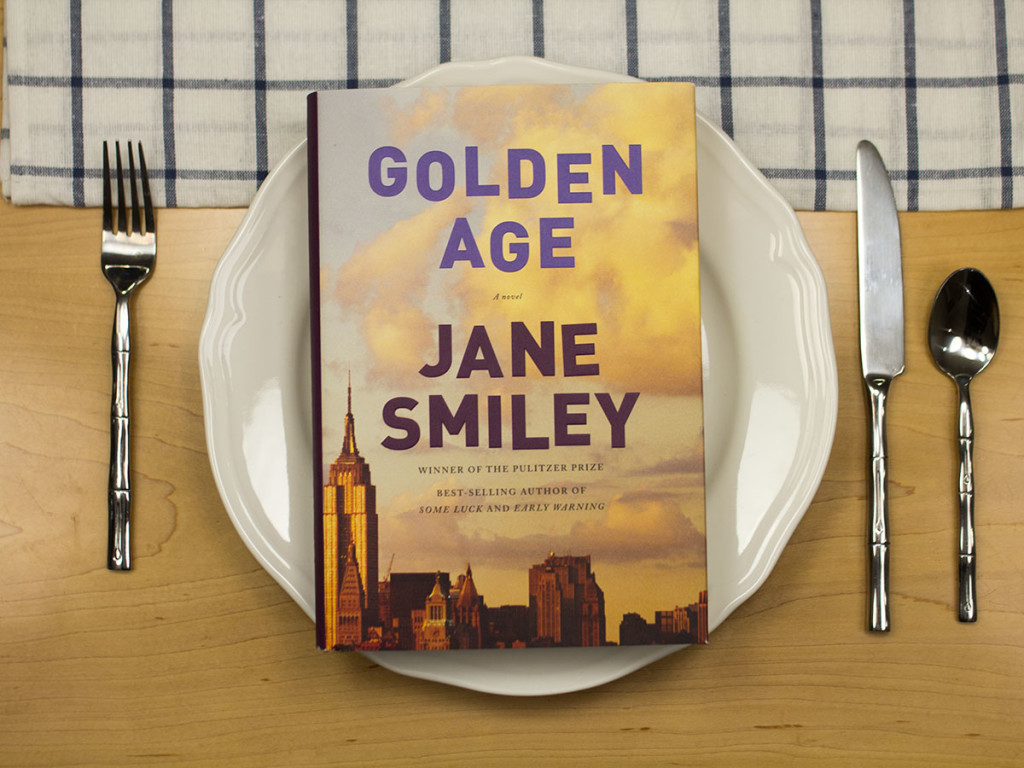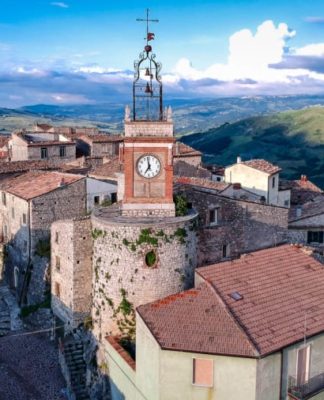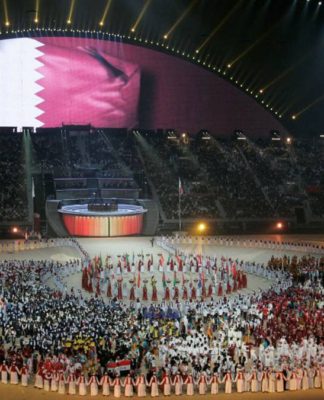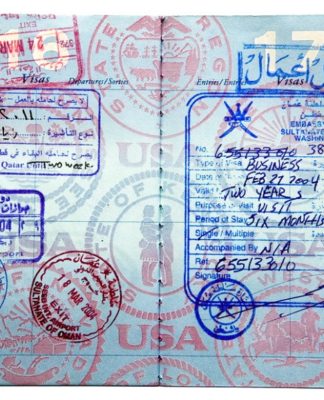The 10 best books of 2015
Jane Ciabattari picks the novels, memoirs and short story collections that deserved a place on your shelf this year.
10Patti Smith, M Train
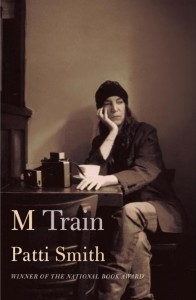
In this glorious and melancholy sequel to her National Book Award-winning Just Kids, Smith returns repeatedly to Café ‘Ino in Greenwich Village, where she drinks coffee and writes in her notebooks, seeking to “reclaim a certain moment, sound, sensation”. She chronicles her travels – to the penal colony in French Guiana that Jean Genet revered; to Berlin, where she visits Bertolt Brecht’s grave; to Frida Kahlo’s Casa Azul in Mexico City; to Rockaway Beach in New York City, where she buys a bungalow on impulse. She weaves together memories, dreams, Polaroid photos, musings on William S Burroughs, Albert Camus, Sylvia Plath, and moments with her late husband, Fred ‘Sonic’ Smith. M Train is filled with poetry, truth, belief in life and writing, and “the warmth of human compassion”. (Credit: Knopf)
9Tracy K Smith, Ordinary Light
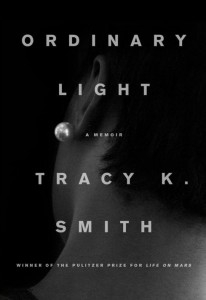
“She left us at night,” Smith, a Pulitzer Prize-winning poet, writes in the first sentence of her memoir. She opens with an eloquent lament, an account of her mother’s last days and moments, and her own poignant private farewell. She moves on to search for her mother through memories. She remembers her as a steady presence during visits to grandparents, while spending time with her much-older siblings, even in her first encounters with poetry. Smith shares her reminiscences with enormous grace, revealing the particularly vulnerable moments she experienced when she became a motherless daughter, and the lingering, everlasting question of what might have been, had her mother been with her when she became a mother herself. Ordinary Light is a homage, a discovery, a blessing. (Credit: Knopf)
8Anthony Marra, The Tsar of Love and Techno
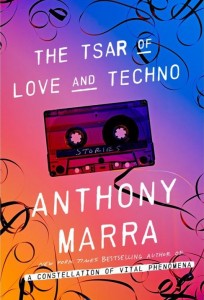
After drawing critical attention for his first novel A Constellation of Vital Phenomena, set during the Chechen Wars, Marra returns to Russia with nine linked stories. His evocative connection is a 19th-Century Chechen landscape painting, which appears first in a story in which a Soviet censor is tasked with erasing dissidents, including his own brother, from artwork. He is punished himself after he secretly paints his brother’s image into the Chechen landscape. Other stories revolve around a ballet dancer and her descendants, and a 2013 doctoral student, researching the censor and his falsified images, who visits the dacha depicted in the painting. The final tale, dated “outer space, year unknown,” opens with an explosion that sends a cosmonaut into a ‘forever night’. A superbly artful collection. (Credit: Hogarth)
7Kate Walbert, The Sunken Cathedral
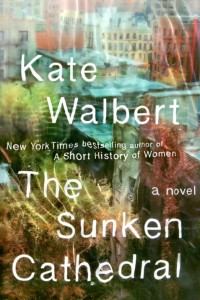
The title to this gorgeously written impressionistic novel is drawn from the Debussy piece about the mythical Cathedral of Ys off the Brittany coast, the ‘musical version’ of Cezanne. It’s just one of Walbert’s reflective layers as she explores the ever-shifting present in a post-9/11 New York jolted by threats of terrorism and flooding. She follows Marie and Simone, two women haunted by memories of escaping war-time France to make a life in Chelsea. Decades later, they watch their neighbourhood gentrify, and soon the newly built Highline adds a patina of glamour. Their neighbour Elizabeth worries about keeping her school-age children safe in a world fraught with new dangers. Walbert underscores the ways in which the submerged past resonates long after we’ve moved on, in search of comfort and enduring love. (Credit: Scribner)
6Colum McCann, Thirteen Ways of Looking
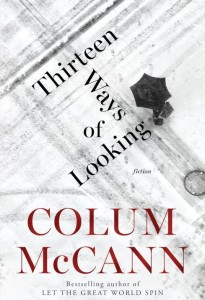
McCann, who won a National Book Award for Let the Great World Spin, wrote these stories just before and after being assaulted on a street in Connecticut. The title novella follows a retired judge through the last day of his life, emphasising the multiple surveillance cameras around him before he is attacked. He muses about his family and cases from the past in a time-shifting stream of consciousness. “We dwell in the constant past,” McCann writes, “even when we’re dreaming of the future.” In three other superb tales of tragedy and consequences – about a woman on guard duty in Afghanistan, a nun who sees on television the man who once tortured her in El Salvador, and a Galway mother whose gift for her disabled adopted teenage son puts his life at risk – McCann shows unparalleled mastery. (Credit: Bloomsbury Publishing)
5Clarice Lispector, The Complete Stories
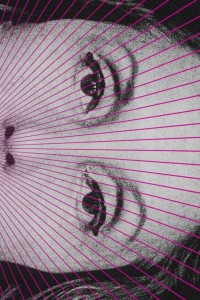
Benjamin Moser’s highly regarded 2009 biography, Why This World, brought the Brazilian writer Clarice Lispector back into the literary limelight. In a natural offshoot of that work, Moser is overseeing new translations of five Lispector novels, including her first, Near to the Wild Heart, which brought the 23-year-old novelist instant fame. This year the series added The Complete Stories, translated from the Portuguese by Katrina Dodson. It’s an unprecedented collection – 86 stories, selected from nine collections, never before collected in any language; a good chunk never published before in English. There are early stories tense with teenage anxieties, and later mysterious tales filled with labyrinths and riddles. Lispector has a rare gift: her translator once said she “looked like Marlene Dietrich and wrote like Virginia Woolf”; Moser compares her to Kafka. (Credit: New Directions)
4Jane Smiley, Golden Age
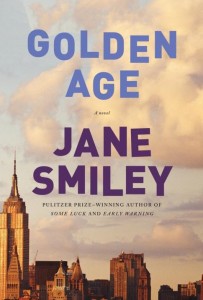
This richly rewarding novel is the last in Pulitzer-winning novelist Smiley’s The Last Hundred Years trilogy, which follows one Iowa farm family, with one year per chapter, beginning in 1920. Centred around the family’s second generation, Andy Langdon and her husband Frank, Golden Age concludes in 2019. The Iowa farmlands have dwindled. Political scandals, recessions, the 9/11 terrorist attacks, drought and social unrest have rocked the US. Andy and Frank’s twin boys work on Wall Street and in Congress. Their sister lives a suburban life in Palo Alto with her family and horses. Their own children face waves of change as they come of age. Smiley lights her characters from within, making their turmoils and triumphs resonate as she brings her masterfully-told chronicle to an end. (Credit: Knopf)
3Elena Ferrante, The Story of the Lost Child
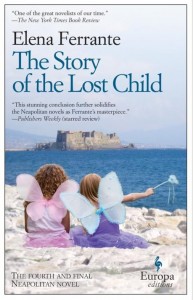
With this last novel in her Neapolitan quartet, secretive literary phenomenon Elena Ferrante brings her revered fictional portrait of a ‘splendid and shadowy’ friendship between Elena and Lila to a close. Gracefully translated into English by Ann Goldstein, The Story of the Lost Child opens in 1976, when Elena returns to her hometown of Naples, leaving her husband behind in Florence. At this point in the story, she has a married lover, two daughters, and a string of published books. Her long-time rival Lila is the last person she wants to see, but soon the two are entwined once again in the violent and vibrant city of their youth. Ferrante’s enduring lesson: “Every intense relationship between human beings is full of traps.” (Credit: Europa Editions)
2Adam Johnson, Fortune Smiles
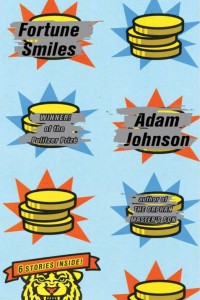
Johnson won this year’s US National Book Award for Fortune Smiles, putting him in rare company – Saul Bellow, Philip Roth, Wallace Stegner and Eudora Welty are authors who have also won that award and the Pulitzer Prize. His collection combines an imagination alert to technological change, a rare empathy, and a range that encompasses Eastern Europe, Silicon Valley, post-Hurricane Katrina New Orleans and North Korea (the setting for his Pulitzer-winning novel The Orphan Master’s Son). The title story follows the bewildering culture shock faced by two North Korean defectors as they encounter the most bizarre of Western pleasures in Seoul. In his story Nirvana, an engineer visits his wife’s bedside as she lies, temporarily paralysed, listening to Nirvana. His comfort comes from late-night conversations with the iProjector hologram he’s created of an assassinated president. Stellar stories. (Credit: Random House)
1Claire Vaye Watkins, Gold Fame Citrus
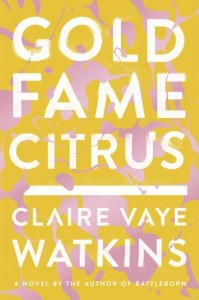
The drought has destroyed Los Angeles, a massive, nomadic Amargosa desert engulfs the land and refugees from the disaster are being herded into camps in other states. That’s the setting for an astonishing dystopian first novel by Watkins, who won several awards for her story collection Battleborn. A former model named Luz and her boyfriend Ray, a war veteran, are scavenging a life in a Hollywood canyon. After rescuing an otherworldly child from a roving band of bad actors, they drive east. Ray disappears into the desert. A desperate Luz and her new child join a colony led by a water-witching guru. Watkins brings a former Death Valley dweller’s sense of California, exquisite language and a sophisticated understanding of power to her tale, which feels disturbingly real. (Credit: Riverhead)














